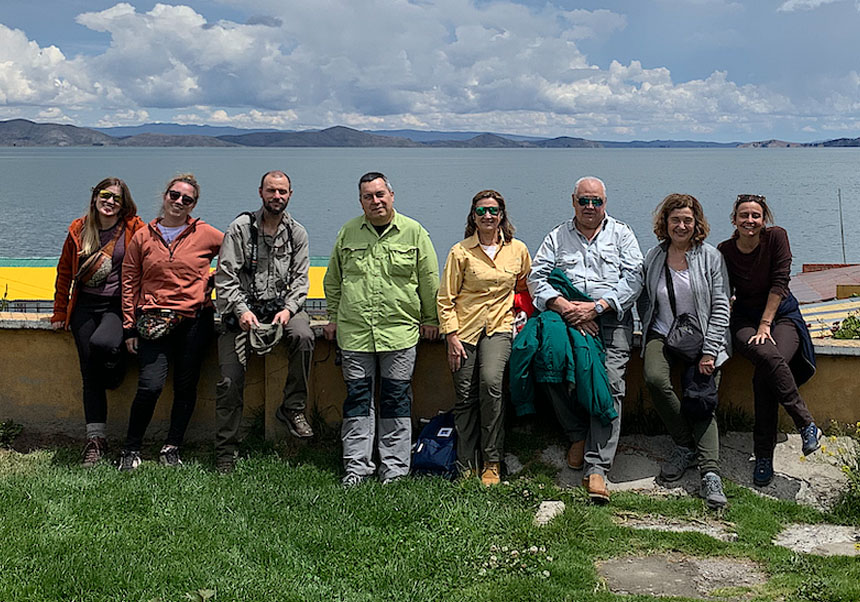The WHO renews the Health Parasitology Unit of the University of Valencia as a world reference centre in parasitic diseases
- Scientific Culture and Innovation Unit
- September 11st, 2023

The World Health Organization (WHO) has renewed the designation of the Health Parasitology Unit of the Faculty of Pharmacy as a world reference centre for the treatment of parasitic diseases, especially fascioliasis and zoonotic helminths. The team from the University of Valencia (UV), which has been designated by the WHO and FAO since 2011 and 2013, respectively, is the only institution in all of Spain with two United Nations reference centres.
The designated Unit is directed by the full professor of Parasitology of the UV Santiago Mas-Coma and the professors María Dolores Bargues and María Adela Valero are its vice directors. Currently, the team meets requirements from various Latin American countries, essentially the Andean countries; also Africa, especially Mediterranean and Sahel countries; and Asia, from Pakistan and the South of the continent to Vietnam and the Philippines. The means to carry out their work are those provided by the University of Valencia. The team also periodically obtains funding for projects in national and international calls.
“This new designation rewards the permanent research effort, collaborations with the most varied countries, and great responsibility and knowledge transfer work”, highlights Mas-Coma, who considers that “our ability to work both in the field and in the laboratory, our multidisciplinary approach to diseases and coordinating a very broad network of centres in countries on all continents. Today, thanks to this network, we have a very rapid response capacity wherever a health problem or epidemic originates”, points out the expert.
María Dolores Bargues, for her part, explains: “In the team we all collaborate and interact with everyone, although it is my turn above all to direct the research into the characterisation of infectious agents and vectors through Molecular Biology. After so many years, we have a very extensive database that allows us to identify ourselves in a very short time”.
María Adela Valero, who directs in the fields of phenotyping, pathogenicity and immunology, points out that the lines that she coordinates “raise the difficulty of transferring the results of our research to health centres that logically are not trained in our cutting-edge research methodologies, and this leads us to make efforts to produce additional tools that can be used by health officials in endemic areas of developing countries”.
The new challenges caused by infectious diseases that the world faces are more than evident today. The effects of climate change and the impacts of the so-called global change are leading to changes in the prevalence, intensity and geographic distribution of these diseases. Epidemics are currently spreading much faster as a result of the greater and faster means of transport for humans, but also for animals and plants. In a very short time, a local epidemic risks becoming a global pandemic.
These new situations force the United Nations agencies that are responsible for the control of these diseases at the international level to strengthen ties of effective and permanent collaboration with research groups of recognised high capacity and prestige. The WHO has in its organisation chart its reference centres for human and animal diseases, elected for four-year periods and whose activity is evaluated annually by panels of internal and external experts. Only when the computation of the four-year period has been positively evaluated and they consider that it is necessary to continue counting on the help of the centre, do they proceed to raise the redesignation for a new subsequent period.
















